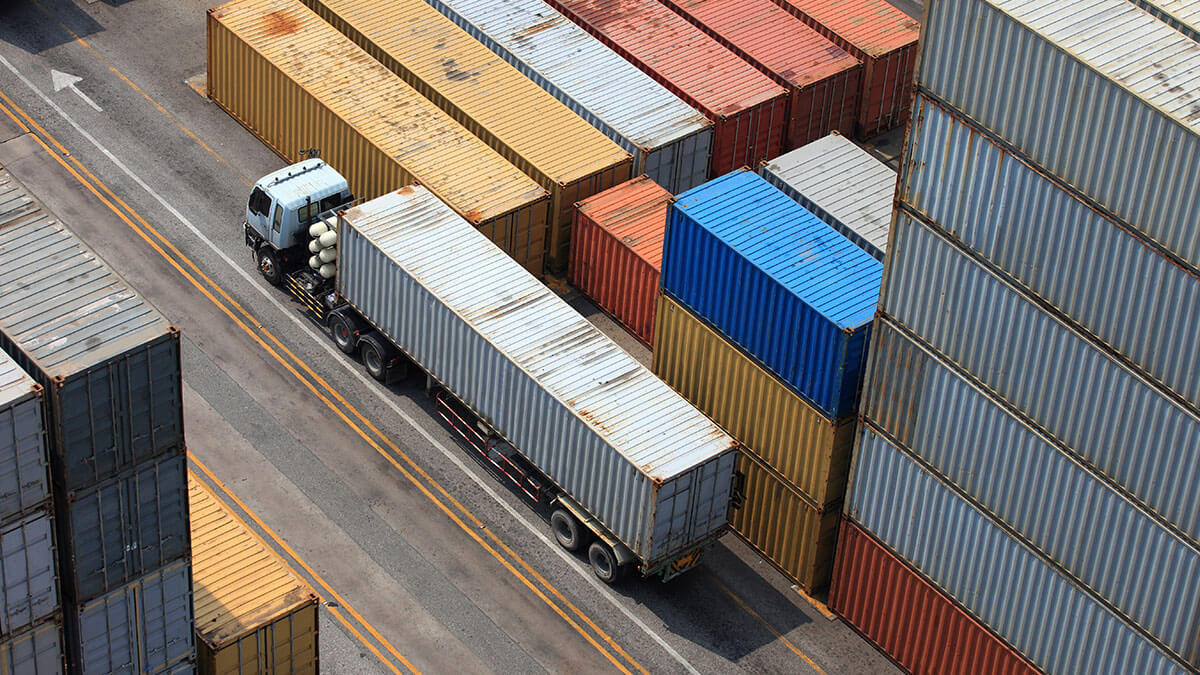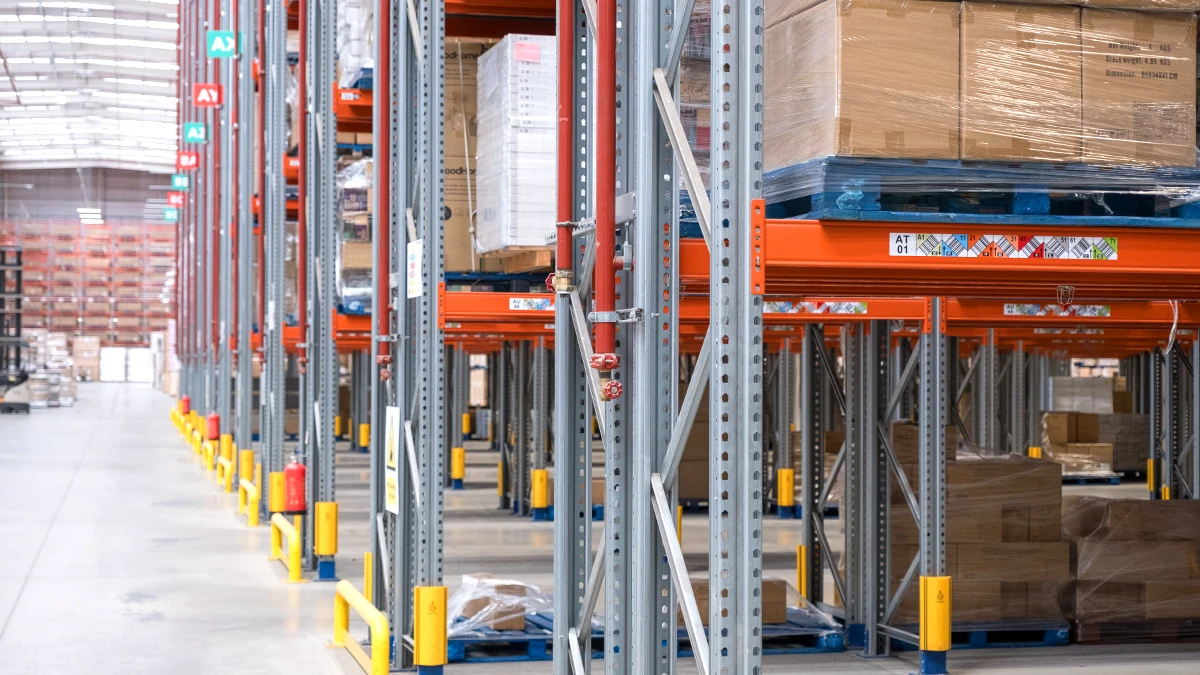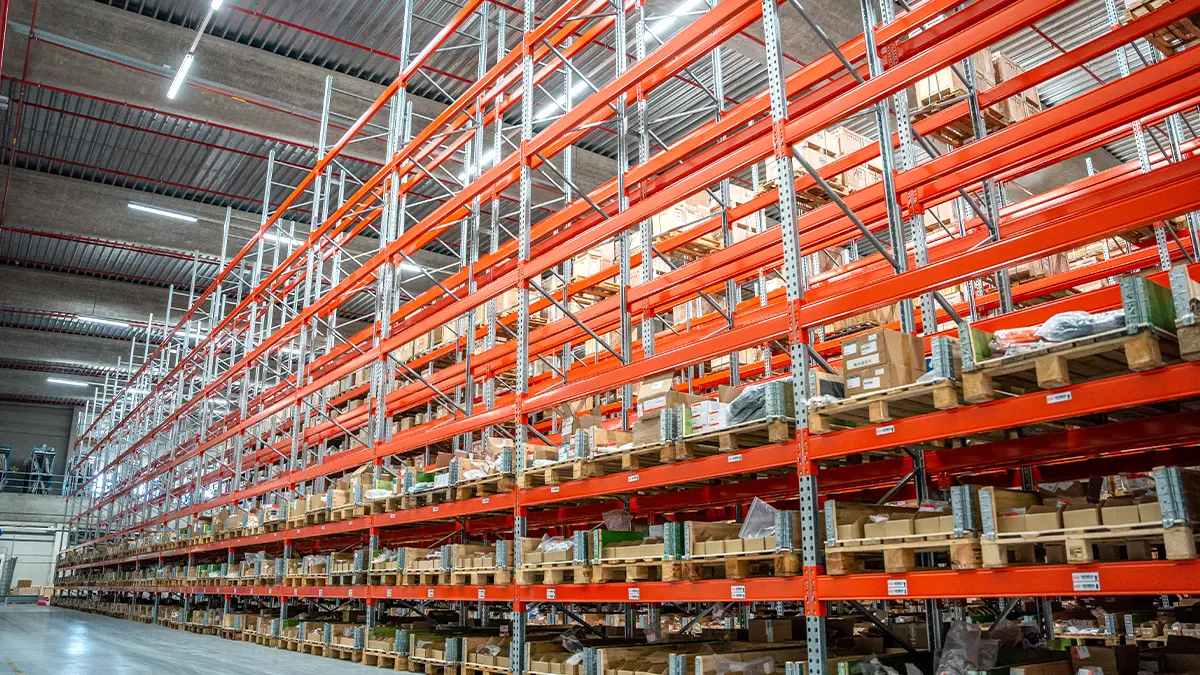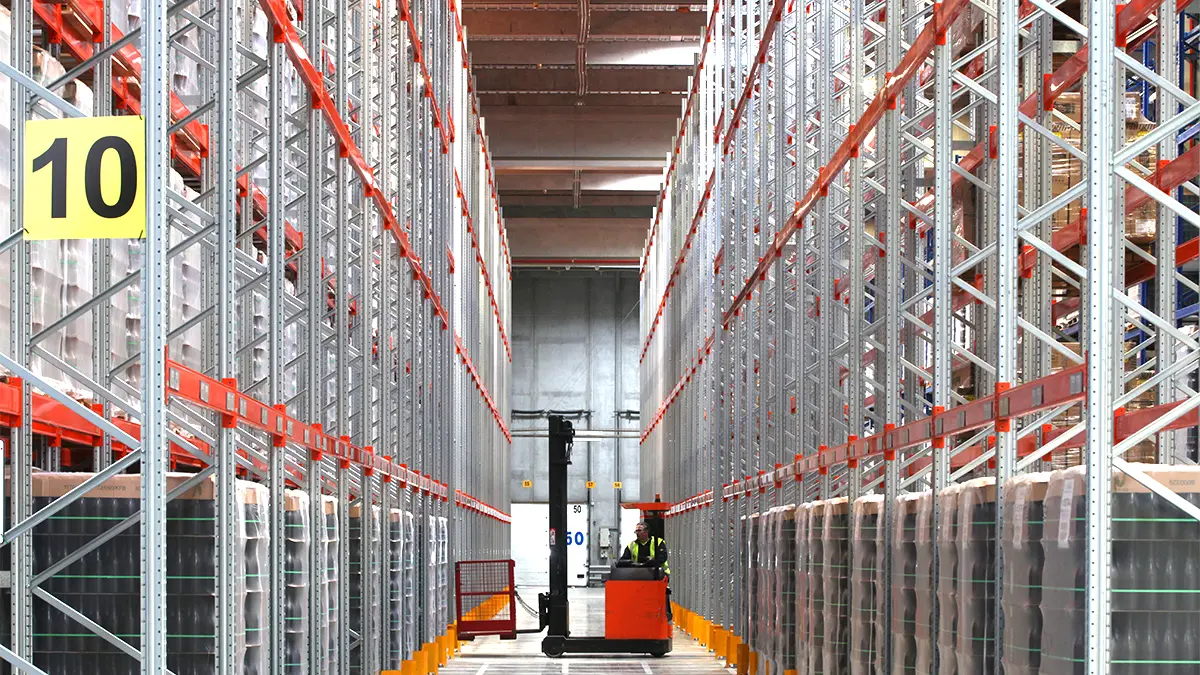A logistics network is part of a system designed to efficiently connect the production activities of a product and its consumption (sale to end customer). It is part of the supply chain. Put another way, its main purpose in the supply chain is transport and storage, and although it may appear something simple, it is a business process that requires detailed planning. This complex task is commonly outsourced to logistics operators whose types and functions will be looked at below.
Planning the logistics network is not a simple task because many variables must be considered: supply policy, volume of goods, transport systems, available warehouses and their racking configuration, future forecasts, etc.
Therefore, when preparing the logistics plan, some essential aspects must be considered:
- Specify and classify what product the company markets and everything that this involves in the logistics plan: volume, weights, handling, etc.
- Specify the logistics activity for each product.
- Identify the transport needs of the product and its life cycle in the warehouse.
- Storage capacity.
- Provision of warehouses or logistics centres.
Logistics planning: objectives
Once this initial analysis has been completed, it will be necessary to set some objectives that give meaning to the implementation of the logistics network:
- Reduction in transport, particularly in terms of frequency.
- Reduction in handling.
- Optimum stock level.
- Eliminate as far as possible potential unpacking and repackaging, adaptations and preparation of specific orders.
- Reduction in the necessary checks.
The main objective of the plan therefore is to simplify as much as possible the transport and storage processes so that they are quicker, simpler, more practical and profitable using the number of human and mechanical resources strictly necessary.
Design of a logistics network: transport and storage
After establishing the objectives that you must or wish to achieve with the logistics planning, it is time to establish how, i.e., the design of the logistics network. As we said it is about connecting efficiently and profitably for the production company and the sale of a product: be the central activities of the entire supply chain process.
The logistics network can be managed entirely internally or by drawing on the support of the various different types of logistics operators: 1PL, 2PL, 3PL, 4PL, 5PL.
The logistics network, which is basically the transport and storage of goods, must be established taking into account several criteria:
- Determination of the means of transport to be used: groups, quantities of product to be transported, provision of the means themselves, service capacity, etc.
- Location of the warehouses: to determine their location, it must also be considered where the points of sale are going to be.
- Type of warehouse or warehouses required: depending on the type of product in question, the warehouses can be a central warehouse located close to the manufacturing, a distribution warehouse, a transit warehouse, etc.
Outsourcing: logistics operators
The demands and complexity of setting up the logistics network have led to many companies outsourcing these operations. So, what are logistics operators? Logistics operators are suppliers specialised in managing part or all of the processes included in another company’s supply chain, which can be storage, transport, distribution or stock management itself.

The main advantage for companies that decide to contract logistics operators is that they avoid having to invest resources in developing their own logistics platform, in having to secure a transport fleet or in training personnel.
Logistics operators play a key role that goes beyond mere implementation. They are also responsible for the supervision, analysis, management and profitability of the phases of the supply chain assigned to them. And indeed, depending which specific tasks of the supply chain are outsourced, different types of logistics operators can be identified.
Types of logistics operators: 1PL, 2PL, 3PL, 4PL and 5PL
Depending on the level of responsibility that the logistics operator has with the contracting company’s supply chain, it is possible nowadays to split operators into five different groups:
They are called XPL. The acronym PL stands for party logistics. And the X is replaced by values which range from 1 to 5, depending on the operator’s level of responsibility with the contracting company, with 5 being the highest integration.

1PL logistics operators
1PL logistics operators (first party logistics) are mainly the transportation companies in charge of transporting the goods from one point to another. The contracting company in this case does not delegate either the storage or warehouse operations.
2PL logistics operators
In this case, the logistics operators are responsible for the transport and storage of the products. The coordination of operations continues to depend on the contracting company, but 2PL logistics operators (second party logistics) are in charge of the transport fleets and storage of products.
3PL logistics operators
At this level of logistics integration, 3PL logistics operators are responsible for the total management of the storage and goods transport processes. Third-party logistics, unlike 2PL, offers a more complete service because it assumes the responsibility of fleet management, warehouse management and the coordination of both. Another important differentiation is that in this case the warehouses and means of transport offered belong to the logistics operator themselves.
When this level of delegation is achieved in the logistics operation, the relationship that is established is for the long term and the level of suitability and adaptation of the logistics operator to the contracting company’s needs is high.
4PL logistics operators
These are the logistics operators that transcend the transport and storage phases and take responsibility for the entire supply chain management. However, they do not perform the functions of the 3PL with more autonomy; instead, fourth party logistics are those logistics operators responsible for supervising and coordinating the work of the 3PL.
5PL logistics operators
At this level, we are talking about the highest degree of integration in the supply chain by a logistics operator. Contracting companies delegate the whole of their supply chain in fifth party logistics. These are suppliers with the capacity and experience to manage many supply chains at the same time and internationally.
This type of logistics operators subcontracts to the 3PL (transport fleet, storage, management of both) and to the 4PL (audit and supervision of the 3PL) to meet their commitments. 5PL logistics operators are suppliers involved in the strategic and logistics planning of companies that contract their services.
Advantages and disadvantages of contracting logistics operators
As with any subcontracting, before going ahead, its pros and cons need to be weighed up. When contracting a logistics operator, certain benefits can be identified, but there are also various drawbacks to consider:
| Advantages | Disadvantages |
|
|




